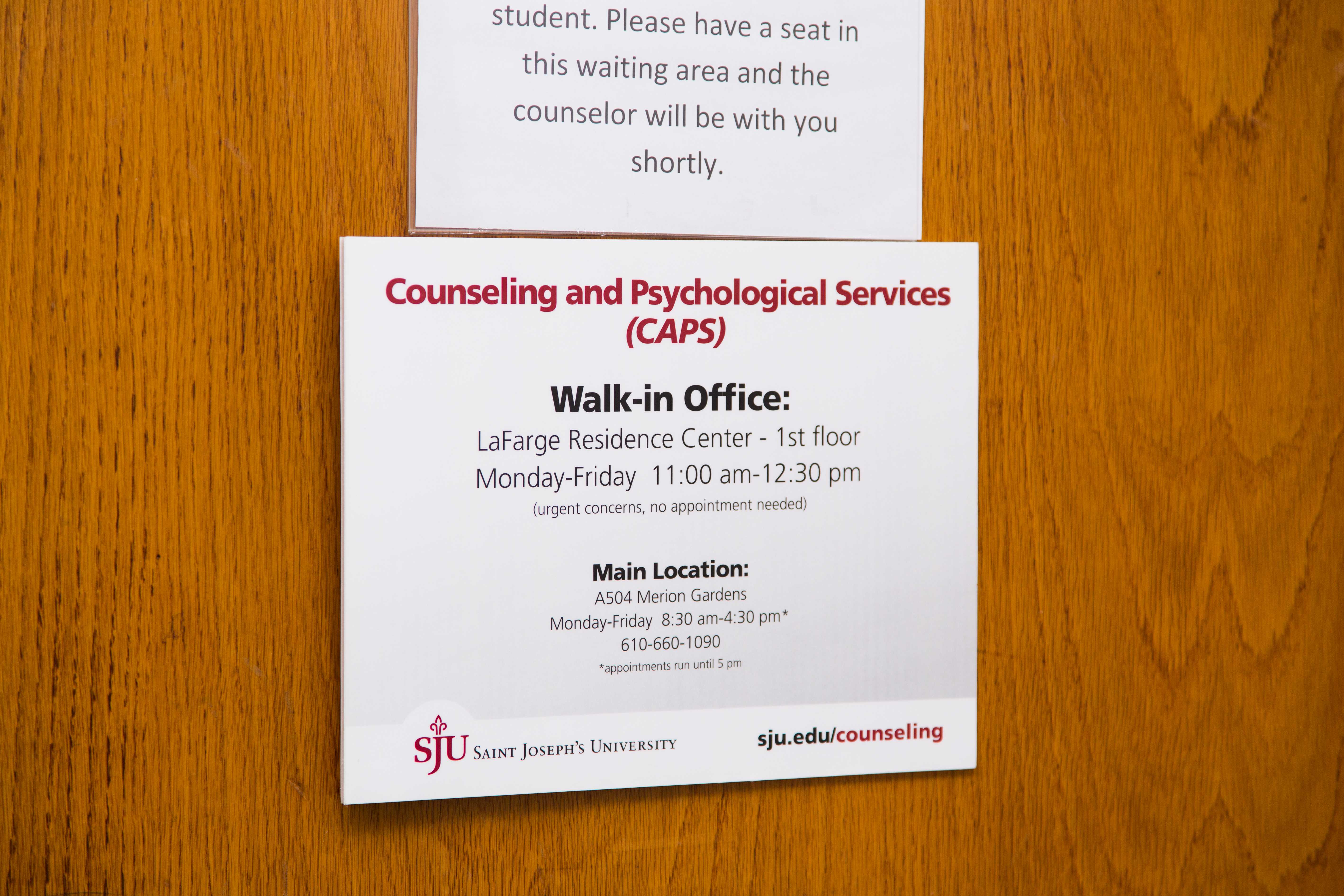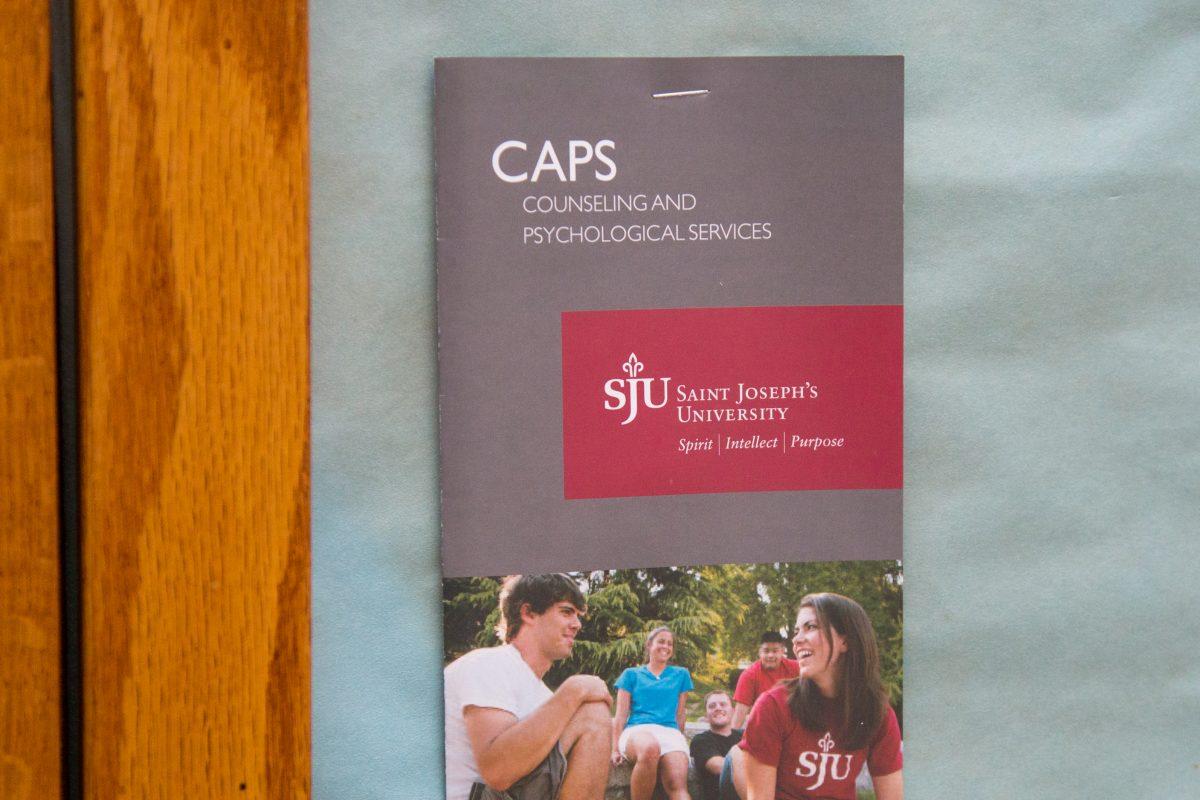CAPS removes appointment limits
During the summer of 2017, Saint Joseph’s University Counseling and Psychological Services (CAPS) removed its 40-appointment limit for students.
While the limit was in place, students who reached the appointment maximum would automatically be referred to an off-campus counseling program. This appointment cap discouraged some students from attending CAPS.
Ethan Flanagan ’18 worried about his restricted access to on-campus counseling. Even though he attended sessions during his first two years at St. Joe’s, he didn’t go as often as he wanted
“I was stressed out making sure that I wasn’t going over it,” Flanagan said. “There were times when I felt like I could have gone more, but I didn’t want to, because I didn’t want to waste it.”
Flanagan said counseling services are crucial to student success, but the appointment limit stopped some students like himself from scheduling more sessions.
“It’s a free service, which is great, but you’re scared of losing it,” Flanagan said. Gregory Nicholls, Ph.D., director of CAPS, said that CAPS could not fulfill the appointment requests three years ago, which led to a short waitlist after a student’s first visit.
“Students would’ve benefitted a lot from coming in, but we had to delay,” Nicholls said. “We couldn’t fit them in.”
Many universities across the country have waitlists due to the high demand for counseling services. According to the 2013 Association for University and College Counseling Directors survey, 32 percent of college counseling centers had a waitlist at some point.
“We decided on a limit to ration our services, to bring in more students, and maybe not go as long with some students,” Nicholls said.
Nicholls explained that staffing changes allowed for more flexibility, but the stabilizing university population provided the most motivation for removing the limit.
“We felt we didn’t need the limit anymore,” Nicholls said. “We hope we can avoid a waitlist even without a limit, and we think we can.”
Over the past year, the number of first-year students at St. Joe’s has decreased. This year’s incoming class consists of 1,078 students. In comparison, the class of 2020 had 1,250 incoming students.

“We’re taking advantage of the fact that the university isn’t going to grow too big,” Nicholls said.
Maryanne Benetatos, administrative assistant for CAPS, said that CAPS works to promote their services and provide support to students. She said students should not hesitate to make an appointment if they want help.
“Just come on over and meet with someone,” Benetatos said. “The door is always open.”
Bree Gould, Psy. D, psychologist at CAPS, said the typical treatment length still remains short-term, but the center is flexible for students’ needs.
“We are committed to working with students to determine what the best length of treatment is for their individual needs,” Gould said. “For some students, this may mean more than 40 sessions at CAPS, but for most it will mean briefer and potentially multiple rounds of counseling throughout their time at SJU.”
The policy change also reflects the increasing need for counseling at universities throughout the nation. According to the Center for Collegiate Mental Health 2015 report, the growth in counseling center appointments over the past six years has increased by 38.4 percent, which is more than seven times the growth rate of university enrollments.
Many factors may contribute to the rise in demand for counseling. The increased demand could also indicate a growing awareness of mental health issues and reduced stigma about attending counseling.
As director of CAPS, Nicholls said he’s noticed this increasing need for counseling at St. Joe’s.
“Students today in general are a little more anxious than years ago,” Nicholls said. “We’re here to promote the student’s well-being and see them in times of difficulty.














































